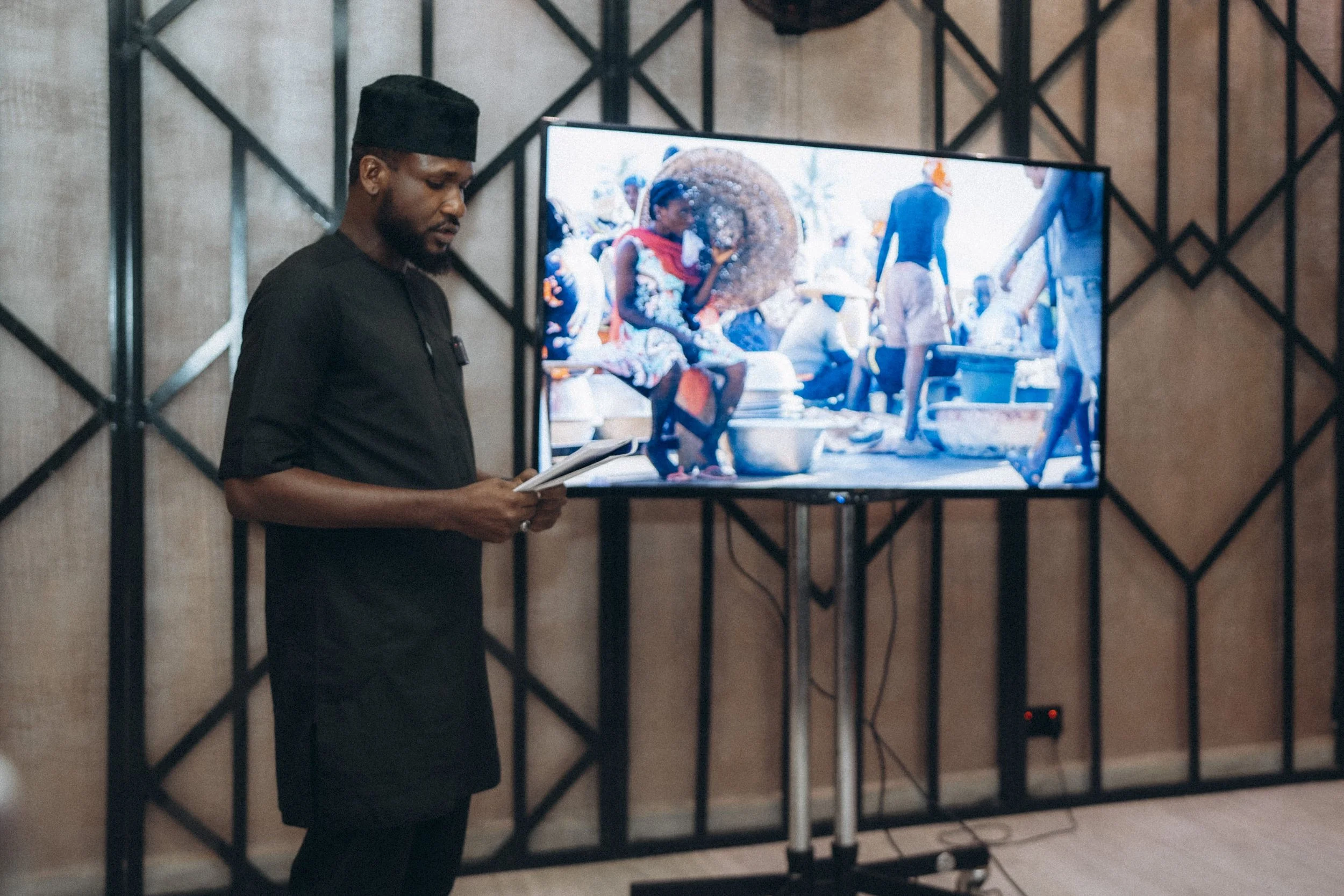Silenced Echoes Film Launch; When Corporate Interest Overshadows Community Rights
In partnership with Surge Africa, Moha Sheikh Studios hosted the premiere of Silenced Echoes, a powerful short documentary exploring the unseen social and environmental costs of fossil fuel infrastructure in Four West African countries.
In an atmosphere charged with curiosity, purpose, and community energy; filmmakers, journalists, climate advocates, and people from diverse communities gathered for an evening of storytelling and truth-telling. The film screening was not just a cultural moment; it was a political one, raising critical questions about who truly benefits from infrastructural development and who is left behind.
Silenced Echoes tells the story of the West African Gas Pipeline (WAGP) and its impact on communities across Nigeria, Benin, Togo, and Ghana. Framed around promises of progress and regional cooperation, the pipeline was meant to bring energy security and economic uplift. But on the ground, the story is far more complicated and far less hopeful.
From displacement without fair compensation to oil spills that lead to contaminated water sources to the erosion of traditional livelihoods of fisherfolk, the film humanises the communities and peoples most affected by the pipelines, and asks the question: How can we pursue energy transition in Africa without replicating patterns of environmental injustice?
Inside the Launch: Dialogue, Resistance, and Reflection
The evening began with a welcome by Nasreen Al-Amin of Surge Africa, who shared the genesis of the project, how a pitch became a film, how strategic funding became solidarity, and how silence became a narrative worth amplifying. The filmmaker, Moha Sheikh, followed with a debrief of the challenges he faced while following the story. In places such as Ghana and Togo, he witnessed the profound pain left by the lingering trauma of environmental degradation, health issues, and growing insecurity that has been inflicted within communities due to presence of the pipeline. He also emphasized that gaining access to communities was difficult, particularly in Nigeria, where mistrust runs deep.
The eight-minute film propelled a number of thought provoking commentaries from participants, specifically around how resources we primarily view as key economic incentives can be redirected to serve the greater good of the masses in terms of promoting development and lifting populations out of poverty. This conversation further leaned towards examining failure of the Nigerian government to capitalize on its oil wealth nearly six decades post-discovery, and some of the corrupt political practices that continue to shape oil discoveries and diminish potential of mega-projects such as the West African Pipelines.
In the end, it was clear that the film resonated with our small audience, as folks continue to draw parallel with what has been shown in the film and similar realities elsewhere. The event wrapped up with an informal networking among participants.



